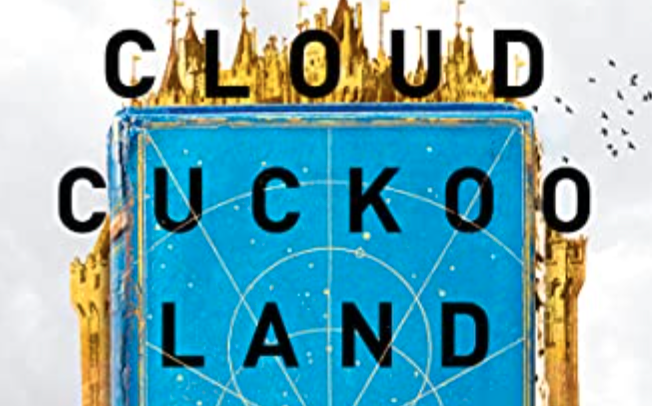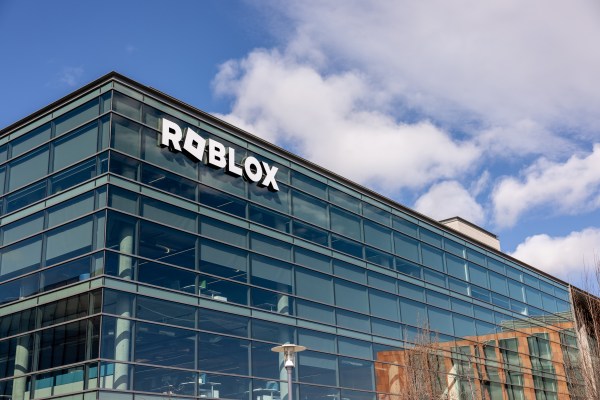“Stranger, whoever you are, open this to learn what will amaze you.”
To say the scope of Anthony Doerr’s 2021 novel, Cloud Cuckoo Land, is ambitious is an understatement. Over the course of more than 600 pages, readers travel back and forth between 15th-century Constantinople, 21st-century Idaho, and a 22nd-century starship, discovering that these apparently disparate times and places—and the characters who inhabit them—are connected by their encounters with and care for a particular book.
The text in question is Cloud Cuckoo Land, a (fictional) fable by the (real) ancient Greek romance author Antonius Diogenes. Diogenes’ tale—narrated by Aethon, a simple shepherd who seeks to become a bird and fly to a paradisiacal city in the sky—seems at first like a comedic quest for utopia, with each of the main characters in some way mirroring Aethon’s journey.
Doerr’s characters run the gamut of the human condition. Anna, Omeir, Zeno, Seymour, and Konstance are outsiders, each on their own quest, but they are not flat archetypes or atomized individuals. They’ve been profoundly shaped by their experiences and cultures and defined by their relationships with other creatures, whether family members, owls, oxen, or would-be lovers. And as they learn and transmit Aethon’s story, they discover its insights transcend naive utopianism without reverting to depressing materialism. The fable—originally written for Diogenes’ dying niece—is a source of comfort and meaning in the midst of suffering.
Indeed, Doerr’s story illustrates that the longing for a paradise where everything is made right—a place of abundance and belonging with no more pain and suffering—is inescapable and transcends time, space, and religion. The Ottoman soldiers around Omeir believe it will arrive after they conquer Constantinople—and so do many of the inhabitants of Anna’s home city, who are quick to assume the bombardment of the walls presages Christ’s return. Eighty-six-year-old Zeno is haunted by the thought that he could have reached it if he’d made different choices decades before. Seymour, a lonely kid growing up poor with a single mom, is deceived into thinking he can earn his way there by impressing an online community of eco-terrorists. The crew of the Argos—who apparently fled an Earth ravaged by climate change—imagine paradise will come when the ship reaches its exoplanet destination, Beta Oph2. But Cloud Cuckoo Land, it turns out, can be a surprisingly cold and unsatisfying place: a paradise for birds, not human beings.
The idea of nostos, a hero’s homecoming, is a repeated theme and one of many allusions to Homer’s Odyssey throughout the book. Like the Greek heroes of old, the characters experience plenty of tragedy, disappointment, confusion, and regret—but they return changed after their adventures and misadventures, possessing a new appreciation for their home. While academics bicker about the order of folios and the consequences of the text’s discovery, the fifth graders helping Zeno translate see what’s really going on. “The world as it is is enough.”
In addition to being thought-provoking, Cloud Cuckoo Land is a fun read, beautifully written and well-paced, with readers kept in suspense about how each character’s story will be resolved. How will Anna and Omeir get through the siege of Constantinople? What will happen at the Lakeport Public Library, where Seymour has planted a bomb while Zeno leads the fifth graders in a play rehearsal of Aethon’s tale? What will be the fate of Konstance aboard the Argos?
Doerr doesn’t linger on murky ethical dilemmas, but neither does he construct a simplistic morality tale: Cloud Cuckoo Land is less a struggle between good and evil than a story about the different ways human beings respond to trying circumstances. To that end, books are essential—not as instruction manuals, but as links with other people across time and space.
Another thematic throughline concerns the contingency of human knowledge—and the epistemic humility that contingency requires. Libraries are all over the place—even in virtual reality aboard the Argos, where Konstance is told she has access to the sum of all human knowledge as of the crew’s departure from Earth. But when a crisis leaves her locked in a vault with Sybil, the seemingly all-knowing supercomputer at the heart of the ship, she begins to realize there are things she knows that the AI does not.
When Aethon-in-the-body-of-a-crow arrives at the gates of Cloud Cuckoo Land, he is greeted by two owls who present him with a riddle, the answer to which, they say, is either simple at first, but actually quite complicated, or complicated at first, but actually quite simple. By the time the codex makes its way to Zeno in the 21st century, the original answer to the riddle has been lost to time. But he puzzles out a solution.
“He that knows all that Learning ever writ, knows only this—that he knows nothing yet.”






Please note that we at The Dispatch hold ourselves, our work, and our commenters to a higher standard than other places on the internet. We welcome comments that foster genuine debate or discussion—including comments critical of us or our work—but responses that include ad hominem attacks on fellow Dispatch members or are intended to stoke fear and anger may be moderated.
With your membership, you only have the ability to comment on The Morning Dispatch articles. Consider upgrading to join the conversation everywhere.